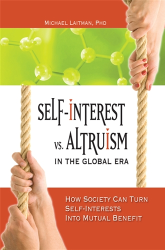How the Wisdom of Kabbalah Originated
Let us, for a moment, journey back through time to ancient Mesopotamia, the cradle of civilization. Roughly 4,000 years ago, situated within a vast and fertile stretch of land between the Tigris and Euphrates rivers in what today is Iraq, a city-state called Babel played host to a flourishing civilization. Bustling with life and action, it was the trade center of the entire ancient world.
Babel, the heart of the dynamic civilization we now call “ancient Babylon,” was a melting pot and the ideal setting for numerous belief systems and teachings. Its people practiced idol worship of many kinds, and among the most revered people in Babel was a priest named Abraham, who was a local authority in the practice of idol worship, as was his father, Terah.
However, Abraham had a very special quality: he was unusually perceptive, and like all great scientists, he had a zeal for the truth. The great 12th century scholar, Maimonides (also known as the RAMBAM), described Abraham’s determination and efforts to discover life’s truths in his book, The Mighty Hand:
“Ever since this firm one was weaned, he began to wonder. …He began to ponder day and night, and he wondered how it was possible for this wheel to always turn without a driver? Who is turning it, for it cannot turn itself? And he had neither a teacher nor a tutor. Instead, he was wedged in Ur of the Chaldeans among illiterate idol worshippers, with his mother and father and all the people worshipping stars, and he—worshipping with them.”
In his quest, Abraham learned what lies beyond the borderland that William Crookes described so many centuries later. He found the unity, the oneness of reality that Heisenberg, Schrödinger, Einstein, Leibniz, and others intuitively sensed. In Maimonides’ words, “He [Abraham] attained the path of truth and understood the line of justice with his own correct wisdom. And he knew that there is one God there who leads…, and that He has created everything, and that in all that there is, there is no other God but Him.”
(To interpret these excerpts correctly, it is important to note that when Kabbalists speak of God, they do not mean it in the religious sense of the word—as an almighty being that you must worship, please, and appease, which in return rewards devout believers with health, wealth, long life, or all of the above. Instead, Kabbalists identify God with Nature, the whole of Nature. The most unequivocal statements on the meaning of the term, “God,” were made by Baal HaSulam, whose writings explain that God is synonymous with Nature.
For example, in his essay, “The Peace,” he writes, “To avoid having to use both tongues from now on—Nature and a Supervisor—between which, as I have shown, there is no difference…it is best for us to…accept the words of the Kabbalists that HaTeva (The Nature) is the same…as Elokim (God). Then, I will be able to call the laws of God ‘Nature’s commandments,’ and vice-versa, for they are one and the same, and we need not discuss it further.”)
Abraham’s Immortal Wisdom on How to Best Understand God
“At forty years of age,” writes Maimonides, “Abraham came to know his Maker,” the single law of Nature, which creates all things. But Abraham did not keep it to himself: “he began to provide answers to the people of Ur of the Chaldeans and to converse with them and to tell them that the path on which they were walking was not the path of truth.” Alas, like Galileo after him, and many other great forerunners throughout history, Abraham was confronted by the establishment, which in his case was Nimrod, king of Babel.
He [Nimrod] told him, ‘Worship the fire.’ Abraham responded, ‘Should I worship the water, which quenches the fire?’ Nimrod replied, ‘Worship the water!’ He told him: ‘Then, should I worship the cloud, which carries the water?’ He told him, ‘Worship the cloud!’
“He [Abraham] told him: ‘In that case, should I worship the wind, which disperses the clouds?’ He told him, ‘Worship the wind!’ He [Abraham] told him, ‘And should we worship man, who suffers the wind?’ He [Nimrod] told him: ‘You speak too much; I worship only the fire. I will throw you in it, and let the God that you worship come and save you from it! Abraham was thrown into a furnace, but he miraculously survived.
Thus, Abraham successfully withstood Nimrod, but was expelled from Babylon and left for the land of Haran. But Abraham, the harbinger from Babylon, did not stop circulating his discovery just because he was exiled from Babylon. Maimonides’ elaborate descriptions tell us, “He began to call out to the whole world, to alert them that there is one God to the whole world… He was calling out, wandering from town to town and from kingdom to kingdom, until he arrived in the land of Canaan…
“And since they [people in the places he wandered to] gathered around him and asked him about his words, he taught everyone…until he brought them back to the path of truth. Finally, tens of thousands assembled around him, and they are the people of the house of Abraham. He planted this tenet in their hearts, composed books on it, and taught his son, Isaac. And Isaac sat and taught and warned, and informed Jacob and appointed him a teacher, to sit and teach… And Jacob the Patriarch taught all his sons, and separated Levi and appointed him as the head, and had him sit and learn the way of God…”
To guarantee that the truth would carry through the generations, Abraham “commanded his sons not to stop appointing appointee after appointee from among the sons of Levi, so the knowledge would not be forgotten. This continued and expanded in the children of Jacob and in those accompanying them.”
The astounding result of Abraham’s efforts was the birth of a nation that knew the deepest laws of life, the ultimate Theory of Everything: “And a nation that knows the Creator was made in the world.”
Indeed, Israel is not merely a name of a people. In Hebrew, the word, Israel (Ysrael) consists of two words: Yashar (straight), and El (God). Israel designates a mindset of wanting to discover life’s law, the Creator. Put differently, Israel is not a genetic ascription or attribution; it is rather the name, or direction of the desire that drove Abraham to his discoveries. Genetically, the first Israelites were mostly Babylonians, as well as members of other nations who joined Abraham’s group. This was obvious to the ancient Israelites. As Maimonides wrote, they had their teachers, the Levis, and they were taught to follow life’s essential laws.
Today, however, we are unaware of the fact that “Israel” refers to the desire to know life’s basic law, the Creator, and not to a genetic lineage. Nearly 2,000 years of concealment of the truth, since the ruin of the Second Temple, has practically obliterated the truth that Kabbalah—the science that teaches Nature’s (God’s) unity—is for all the people in the world, just as Abraham intended it for all the people in Babel, and later “Began to call out to the whole world,” as described by Maimonides.
Here’s a Quick Way to See How the Same Law Governs Abraham, Napolean and China
Moreover, the need to discover this force is as pertinent today as ever. Nothing has changed in Nature since Abraham’s time, and the law of unity and oneness is still the one force that creates, governs, and sustains life.
In fact, today, our need to know it is more pertinent than ever because in Abraham’s time, humanity had numerous roads from which to disperse, and ample land to inhabit. Today, however, we have a global community, and every crisis is on a global scale. The mistakes we make take their toll on the whole world. Abraham’s discovery helps us add life’s force into our calculations and plans, which makes it paramount, life-saving information.
The force that Abraham discovered and described to his students is the very force that drove Napoleon to conquer more than he could rule, and which is still driving China to globalize, instead of isolate. Yet, this force is also behind the voices that hail protectionism and separation. In a global world, protectionism could spell the end of our civilization. Our only hope is to unite, because unity is the direction of the force that drives all of life. our challenge, therefore, is to learn how to unite. It is possible and plausible, but in a time of crisis, it will require recognizing life’s force and generating a mutual effort to cooperate and collaborate, to live by this law’s dictates.
 “Abraham’s Immortal Wisdom on How to Best Understand God” is based on the book, Self Interest vs. Altruism in the Global Era: How Society Can Turn Self Interests into Mutual Benefit by Dr. Michael Laitman.
“Abraham’s Immortal Wisdom on How to Best Understand God” is based on the book, Self Interest vs. Altruism in the Global Era: How Society Can Turn Self Interests into Mutual Benefit by Dr. Michael Laitman.


Great people always challenge poor mind: the voice of intellect is a soft one but it Does not rest Until It Has Gained a hearing. That’s Abraham way. Thanks